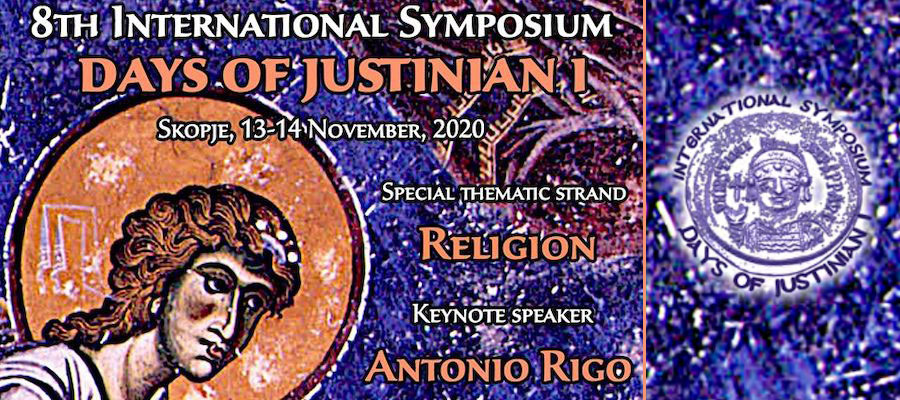8th Days of Justinian I, Skopje, November 13–14, 2020
The International scientific symposium “Days of Justinian I” is an annual interdisciplinary scholarly forum aimed at the presentation of the latest research followed by discussions on various aspects of Byzantine and Medieval Studies before 1500; this includes the treatment and interpretation of cultural, historical and spiritual heritage in contemporary modern Europe. The Symposium is dedicated to Emperor Justinian I with the aim to bring together scholars from around the world to address a broad range of issues related to Byzantium and the European Middle Ages, comprising the exploration of the cultural and historical legacy as an integrative component of the diversities and commonalities of Unified Europe.
This year the special thematic strand, Religion, aims to incite scholarly debate about the different concepts of religion in Byzantium and Medieval Western Europe. Being an essential component of the Byzantine and Medieval Western World, the religion has shaped the identity of the individuals, communities, polities, acting as a factor of division and unification. Various questions will be raised in examining the profound role of religion in historical processes, political and cultural transformations, that transcended boundaries and time. As an inspirational model for the literary, architectural, artistic works, religion will be also observed as an intermediate expression of the past traditions, the system of networks, values, beliefs and practices. The Symposium will address wide range of conceptional issues in exploring the phenomena of religion and religious controversies in Eastern Roman Empire and Medieval Western Europe. This will include the perspectives of the religion as a function of culture and belonging, its role in defining and constructing the identities, the exclusion and inclusion, conversion and defiance, violence and tolerance, militarization and waging “sacred” wars, relationship with the nations, the heritage of Europe.
